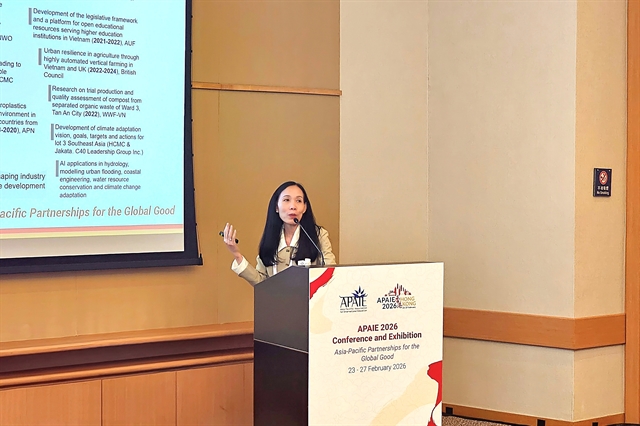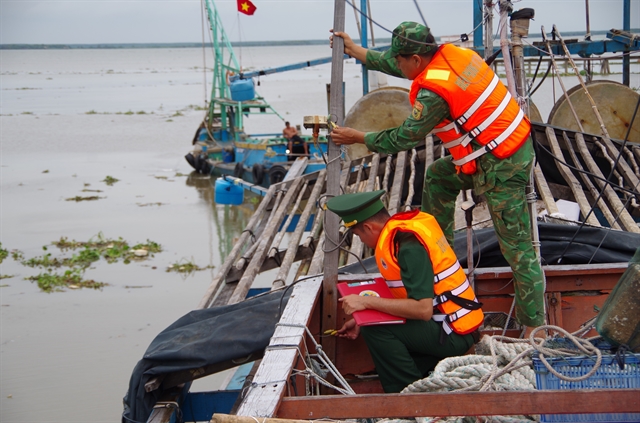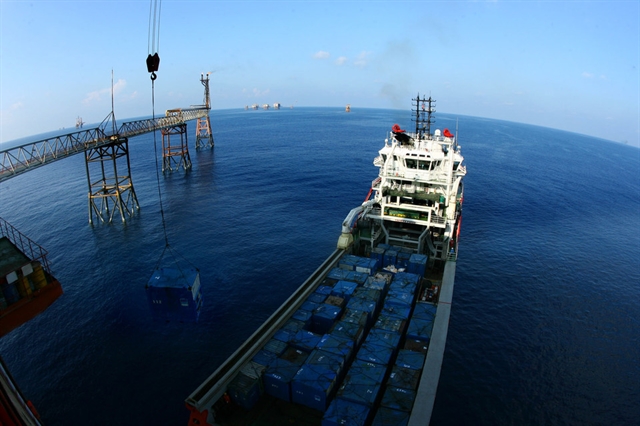 Society
Society

 |
| Since 2024, Đồng Tháp Province has reported no fishing vessels violating foreign waters. — VNA/VNS Photo |
ĐỒNG THÁP — Đồng Tháp Province continues to advance sustainable fishing practices, enhance offshore productivity and support national efforts to lift the European Commission’s IUU “yellow card”.
A key factor behind these achievements is the expansion of collaborative fishing groups and co-operatives, which have enabled fishermen to reduce costs, remain longer at sea and enhance compliance with legal requirements.
The province now has more than 1,500 fishing vessels with 9,747 crew members.
Since 2014, when the co-operation model was introduced, Đồng Tháp has formed 31 fishing co-operation groups with 392 vessels and 3,453 crewmen, alongside one fishing co-operative with 10 vessels and 70 members. Three fishery trade unions operating with 98 vessels and 745 crewmen help further consolidate the organisational structure of offshore fishing.
Fishermen say the benefits are increasingly evident. Shared logistics, mutual assistance at sea and coordinated trips have helped stabilise incomes and improve safety.
In emergencies such as storms, accidents, or machinery failures, support from vessels within the same group arrives promptly, reducing risks that could affect productivity and cost vessel owners significant losses.
Equally important is the improvement in fishermen’s awareness of responsible fishing. Local authorities frequently convey messages on compliance through community meetings, Nghinh Ông festivals and local information channels.
These reminders, which emphasise the importance of maintaining complete documentation, reporting according to regulations and avoiding IUU violations, have gradually improved responsible fishing behaviour across the province.
Gia Thuận Commune, a major fishing area with 580 registered vessels, including 436 offshore and 145 nearshore boats, recorded a catch of 40,760 tonnes of seafood in the first ten months of 2025.
Local fishermen credit this performance to better organisation within the co-operation groups, which has helped minimise wasted time and improve efficiency.
For fishermen like Lê Văn Muồi, director of the Vàm Láng Fisheries Co-operative, cost savings are clear.
With 10 offshore vessels, his co-operative has reduced expenses significantly by sharing transport services. In the past, vessels would spend two to three months at sea before returning with their full catch.
Today, smaller service boats collect seafood more frequently and deliver it to shore, ensuring fresher products and better market prices. This shift reduces the risk of spoilage and allows offshore vessels to maximise time spent at sea.
Before each trip, co-operative members meet to discuss weather conditions, fishing grounds and regulations.
Fishermen are reminded to avoid prohibited waters, follow registered routes and carry full documentation. This collaborative approach has strengthened compliance and operational discipline.
A similar level of cooperation is seen at the Trường Duy Fishing Co-operation Group, led by Lý Văn Liểng.
Vessels frequently exchange information about fish shoals, while service boats deliver fuel, ice and essential supplies.
According to fishermen, this reduces fuel consumption by 15–20 per cent. Some groups estimate savings of up to VNĐ15 million (around US$600) per trip when logistics are effectively shared.
Monitoring systems have also been improved. Captains and vessel owners regularly exchange updates about tracking devices to ensure uninterrupted signal transmission.
When a temporary loss of signal occurs, immediate contact is made with equipment providers to restore connectivity as soon as possible.
Maintaining continuous vessel monitoring is essential to avoiding potential IUU violations and ensuring transparency.
Deputy Chairwoman of Gia Thuận Commune People’s Committee Hà Trần Phương Thùy said the commune now has 29 fishing co-operation groups and one fishery co-operative.
She noted that from 2024 to the present, no vessel from the commune has violated IUU regulations – a result she attributes to consistent communication and strong coordination among local authorities, border guard units and the fishing community.
Support from Kiểng Phước Border Guard Station and provincial agencies has reinforced the enforcement of legal requirements.
Fishermen are regularly reminded to respect permitted fishing zones, follow proper procedures and comply with all relevant laws, strengthening efforts toward sustainable fishing.
According to Trần Thị Bé Bảy, deputy director of the Đồng Tháp Department of Agriculture and Environment, the co-operative model not only enhances economic efficiency but also supports better fisheries management.
By providing additional services, purchasing seafood directly at fishing grounds and enabling vessels to stay at sea longer, co-operatives help ensure both productivity and regulatory compliance. — VNS




